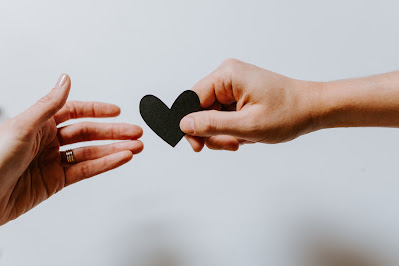On the Kindness of Strangers
Earlier this week, I was sitting in the centre of town (doing my daily half hour of nothing) when all of a sudden, a young motorbike courier hit a skiddy bit of road and went flying.
His bike went one way, he went the other, and both came crashing to a stop in the middle of the busy high street.
Now, if you believe the doomsday prophets of social media, you might expect this to be a story of social apathy. About how the poor lad was left in the road while pedestrians stepped over him, on their way to their important Monday afternoon business.
Luckily, real life isn’t like that, and as I ran over to check the lad was alright, I saw at least half a dozen other people coming to his aid as well. Two big middle-aged blokes wrestled the motorbike away from the tram tracks, while a lady in a headscarf and her daughter asked if the poor lad was ok. A man with gold teeth and a matching tracksuit volunteered a bottle of water, and a lady working at the nursery across the road brought a chair out for the lad to sit in.
Countless people stopped to ask if someone should call an ambulance, but the lad was more shaken than hurt. He had some terrible scrapes all down his legs from where he’d skidded along the road, but thank goodness he’d been wearing a helmet, and that the road wasn’t that busy, or it could have been way worse.
While the lad caught his breath and phoned his boss to come get him, I marvelled at how many people stopped to ask if everything was ok. Literally every person who walked past was offering to help in some way. Some offered lifts, others offered food, but there were no rubber-neckers. People were just really keen to help out.
I remember being taught about the Bystander Effect in A Level Psychology. It’s this idea that people only want to help in an emergency if they see that other people are helping out too. It’s a piece of received wisdom that just doesn’t seem to hold water in most real life situations, and the idea of the bystander effect was brilliantly deconstructed by the You’re Wrong About Podcast in their episode focusing on the story of Kitty Genovese.
I think I broadly agree with the conclusions drawn by the podcast hosts. Whenever I’ve been close to an emergency in the past, I’ve always been so impressed by how many people run towards the problem, rather than away from it.
And, in a world with a lot of social and structural issues right now, I’m glad there are people who are willing to run towards the problem, and do their best to help.
 |
| Image via unsplash.com |
Comments
Post a Comment